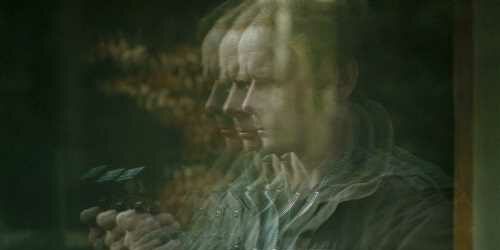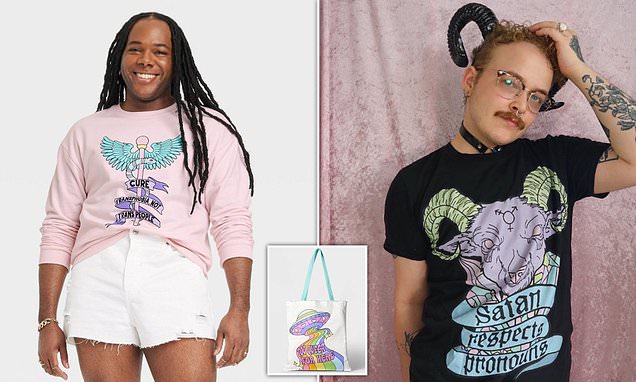Denmark’s “Norwegian Offspring,” by Marlene Emilie Lyngstad, from Den Danske Filmskole, was chosen as the winner of the 26th edition of La Cinef.
In the story, a mother passes away and her estranged son – obsessed with theories about the repression of male sexuality in modern society – starts longing for offspring of his own.
“The jury was captivated by this bold filmmaker,” said Ildikó Enyedi, who presided over the jury.
“It made us laugh and cringe at the same time.”
Earlier, the Hungarian director – behind “On Body and Soul” and, most recently, “The Story of My Wife,” which was at Cannes – addressed the audience: “You made it. To be in this room, it’s a lot and we all know it. We really felt for you [during our discussions]. We tried to go for the raw talent, for the promise. I just hope we did a good job, because we wanted to.”
“It was kind of surprising that people thought it was funny, because it was also so… dark. And melancholic. I found this man in real life. I read his blog where he writes, rather aggressively, how male sexuality is being repressed in modern society. And then he also has these dating sites through which he wants to meet women to have children with them. I met him and started to develop the script by improvising with him,” Lyngstad told Variety after her win.
“I wanted to make this modern odyssey about loneliness,” she stated.
“Putting conflicting feelings in one scene is very exciting to me. And seeing how many you can actually feel, from disgust to empathy.”
The jury, which also included Ana Lily Amirpour, Charlotte Le Bon, Karidja Touré and Shlomi Elkabetz, awarded other prizes.
A second prize was awarded to South Korean “Hole” by Hyein Hwang (KAFA). “A ride that was tense, funny and human at the same time,” argued the jurors. In the film, during a home visit, Jeong-mi discovers a young boy and his little sister living in a house with a large manhole in it. The children ask Jeong-mi to go down the manhole.
“I made it imagining the most difficult situation you could think of,” said the director, adding she was greatly influenced by Korean society and movies.
That’s not the only Korean offering this year, with “The Lee Families” by Jeong-Mi Seo (Korea National University of Arts) also presented.
Finally, third prize went to Morocco’s “Moon” (“Ayyur”) by Zineb Wakrim, from ÉSAV Marrakech, which was called by Elkabetz a “very personal testimony.”
“I hope Morocco is proud of me,” said the visibly touched director. Later, she added: “It’s still quite complicated, making films in my country. You need to know people and know where to go. It’s changing, but very slowly,” she admitted.
“Being here is such a big deal, winning an award more. It has already opened many doors for me, especially because I am the youngest filmmaker here. I would like to talk about the visually impaired people next, focusing on their personal qualities, not their predicament.”
From 2000 short films submitted by film schools from all around the world, 14 short fictions and two animated short films were selected this year.
“Created in 1998 as the Cinéfondation Selection, in order to discover young talented filmmakers right from the very beginning of their career, La Cinef has changed its name but not its mission,” says La Cinef’s artistic director Dimitra Karya.
“Since 2023, La Cinef is part of Cinéma de Demain, a section of the Cannes Festival dedicated to the future of cinema through four main missions: to reveal, transmit, accompany and connect.”

As noted by Karya, more than half of the filmmakers selected this year are women. She is also “particularly pleased” with the participation of two African countries: Morocco, for the very first time, and Egypt with “The Call of the Brook” (“Al Toraa’”) by Jad Chahine (High Cinema Institute), where a young boy goes to a cursed brook and witnesses something that will seal his fate.
The selection also included Iran’s “Inside the Skin” (“Daroone Poust”) from Karnameh Film School) by Shafagh Abosaba and Maryam Mahdiye, about a teenage football player preparing for an important match, all the while keeping a secret, as well as the U.K.’s “Killing Boris Johnson” (NFTS) by Musa Alderson-Clarke, where the inner turmoil of a grieving son collides with the failing political tenure of the Conservatives.
In “The Voice of Others” (“La Voix des Autres”) by Fatima Kaci (La Fémis), a Tunisian interpreter works in France on asylum procedures, and in India’s “Nehemich,” by Yudhajit Basu (FTII), a young girl from a village of nomads hopes to elope with her lover.
Brazil’s “Ground” (“Solos”) by Pedro Vargas (FAAP), about a young worker who starts to hear a strange sound coming from the ground on a construction site in São Paulo, and “Crack of Dawn” (“Trenc d’Alba”) from Spain (ESCAC) by Anna Llargués were also shown. In the latter, the farmhouse of a rural family is declared unfit for habitation. While part of the family fights to save the space their ancestors built, the younger ones imagine where they could go.
Further LA Cinef titles were Yupeng He’s “A Bright Sunny Day,” in which the appearance of a girl on a bright sunny day gently changes the life of a young man, and “Imogene” by Katie Blair, representing Columbia University. Blair’s story focused on a single, free-spirited New Yorker in her forties. Unprompted, her absurdly traditional family thrusts a pregnancy on her.
Germany “Primitive Times” (“Uhrmenchen”) by Hao Yu (Filmuniversität Babelsberg Konrad Wolf) and “Electra” by Daria Kasheeva turned to animation for inspiration, while another FAMU proposition, Petr Pylypčuk’s “Eight Day” (“Osmý Den”), saw a religious sect congregating by a lake in a forest. They are preparing to perform a baptism the next day, but teenage Anna has her own plans.
“The pandemic has left its mark on some of the films. We also note a concern about the environmental changes, as well as the position of women in different societies. Within this variety of filmmaking attitude and genres, one can enjoy the intense creativity displayed by these young directors. It brings hope for the cinema of tomorrow,” adds Karya.
“We are proud to be a part of Cannes’ relentless effort towards discovery: a selection of student films is still something unique in the program of a major festival.”

Read More About:
Source: Read Full Article


